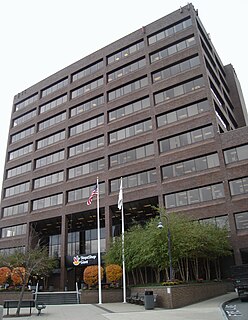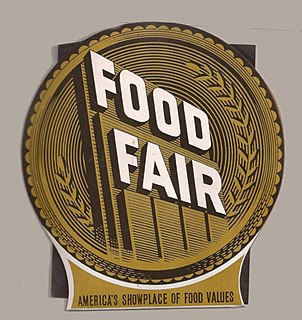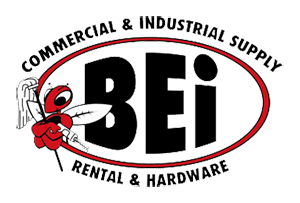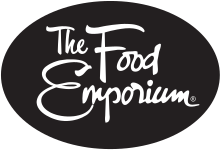
A convenience store, convenience shop, corner store or corner shop is a small retail business that stocks a range of everyday items such as coffee, groceries, snack foods, confectionery, soft drinks, ice creams, tobacco products, lottery tickets, over-the-counter drugs, toiletries, newspapers and magazines. In some jurisdictions, convenience stores are licensed to sell alcoholic drinks, although many such jurisdictions limit such beverages to those with relatively low alcohol content such as beer and wine. Such stores may also offer money order and wire transfer services, along with the use of a fax machine or photocopier for a small per-copy cost. Some also offer to sell tickets or recharge a smart card, like the OPUS card in Montreal. They differ from general stores and village shops in that they are not in a rural location and are used as a convenient supplement to larger stores.

A grocery store (AE), grocery shop (BE) or simply grocery is a store that primarily retails a general range of food products, which may be fresh or packaged. In everyday U.S. usage, however, "grocery store" is a synonym for supermarket, and is not used to refer to other types of stores that sell groceries. In the UK, shops that sell food are distinguished as grocers or grocery shops.

The Great Atlantic & Pacific Tea Company, better known as A&P, was an American chain of grocery stores that operated from 1859 to 2015. From 1915 through 1975, A&P was the largest grocery retailer in the United States.
Kohl's is an American department store retail chain, operated by Kohl's Corporation. As of December 2021 it is the largest department store chain in the United States, with 1,162 locations, operating stores in every U.S. state except Hawaii. The company was founded by Polish immigrant Maxwell Kohl, who opened a corner grocery store in Milwaukee, Wisconsin in 1927. It went on to become a successful chain in the local area, and in 1962 the company branched out by opening its first department store. British American Tobacco Company took a controlling interest in the company in 1972 while still managed by the Kohl Family, and in 1979, the corporation was sold to BATUS Inc. A group of investors purchased the company in 1986 from British American Tobacco and took it public in 1992.
Pathmark is a supermarket brand owned by Allegiance Retail Services, a retailers’ cooperative based in Iselin, New Jersey, USA. Pathmark currently has one location in East Flatbush, Brooklyn, New York, which it has operated since 2019.
A discount store or discounter offers a retail format in which products are sold at prices that are in principle lower than an actual or supposed "full retail price". Discounters rely on bulk purchasing and efficient distribution to keep down costs.

Weis Markets, Inc. is a Mid-Atlantic food retailer headquartered in Sunbury, Pennsylvania. It currently operates 196 stores with over 23,000 employees in Pennsylvania, Maryland, New York, New Jersey, West Virginia, Virginia, and Delaware.

The Stop & Shop Supermarket Company, known as Stop & Shop, is a chain of supermarkets located in the northeastern United States. From its beginnings in 1892 as a small grocery store, it has grown to include 415 stores chain-wide.

Franklins was an Australian discount supermarket chain selling packaged groceries and perishables throughout New South Wales, Queensland, Victoria and South Australia. It sold the "No Frills" home brand generic products. In 2011 the chain was bought by Metcash and the stores were sold off, shut down or converted into new supermarket banners or other brands. The final store closed in April 2015.
SuperFresh is a supermarket brand owned by Key Food Stores which operates in New York City and its New Jersey suburbs. The company currently operates twenty supermarkets.

The Penn Traffic Company was founded in 1854 in Johnstown, Pennsylvania, as a food service company for stagecoaches. It eventually became a general-merchandise department store but by the early 1960s had also returned to the food business through the acquisition of Super Value Corporation, operator of the 10-store Riverside supermarket chain. In 1982, the company sold its department stores and concentrated solely on the food and supermarket business. A series of financial troubles led to Penn Traffic's Chapter 11 bankruptcy filing in November 2009 and sale of assets to Tops Markets in early 2010.

Grand Union Supermarkets, later known as Grand Union Family Markets and often referred to simply as Grand Union, is an American chain of grocery stores that does business in upstate New York and Vermont, and used to do business throughout most of the northeastern United States. It operated stores in other areas of the country including the midwestern and southeastern states, and internationally in the Caribbean and Canada. The company was founded and headquartered in Scranton, Pennsylvania, and moved to Brooklyn, New York in the early 20th century. Grand Union moved again to Elmwood Park, New Jersey and finally to Wayne, New Jersey before the company was forced into Chapter 7 bankruptcy in 2001 and sold to C&S Wholesale Grocers.
The Penn Fruit Company was a regional grocery chain in the Philadelphia and Baltimore areas that operated from 1927 until 1978. During the firm's history it was regarded as one of the most innovative American supermarket chains. However, the company's innovations often were copied by its bigger rivals who eventually succeeded in causing the chain's demise.
Dominick's was a Chicago-area grocery store chain and subsidiary of Safeway Inc. Dominick's distribution center was located in Northlake, Illinois, while its management offices were located in Oak Brook, Illinois.

Food Fair, also known by its successor name Pantry Pride, was a large supermarket chain in the United States. It was founded by Samuel N. Friedland, who opened the first store in Harrisburg, Pennsylvania in the late 1920s. As of 1957, Food Fair had 275 stores, and at its peak, the chain had more than 500 stores. Friedland's family retained control of the firm through 1978, when the chain entered bankruptcy.

Gristedes is a New York City-based chain of supermarkets. It serves a mostly urban customer base.
Kohl’s Food Stores was a Milwaukee-area grocery store chain and subsidiary of The Great Atlantic and Pacific Tea Company. Kohl’s Food Stores distribution center was located in Waukesha, while its management offices were located in Milwaukee, Wisconsin.

Fairway Market is an American grocery chain, founded in 1933 by Nathan Glickberg. It is currently one of the store banners owned by the Wakefern Food Corporation, a company famous for its flagship supermarket cooperative network, ShopRite.

Builder's Emporium was a chain of home improvement stores based in Irvine, California. At the time of its closing in 1993, it had 82 stores in Southern California and an additional 15 in Nevada, New Mexico, Arizona and Texas; 4,300 employees in total.

D'Agostino Supermarkets once a family-owned supermarket chain in the New York City area, is now owned by Gristedes. The store was founded in 1932 by brothers Pasquale and Nicola D'Agostino, in the pioneering phase of the supermarket industry. At D'Agostino's peak in the 1990s, the chain operated at 26 locations in New York City and adjacent Westchester County, with annual sales exceeding $200 million. By 2016 under financial pressure, D'Agostino's consolidated to nine stores, all in Manhattan, and sold a controlling interest to John Catsimatidis, owner of Gristedes.














